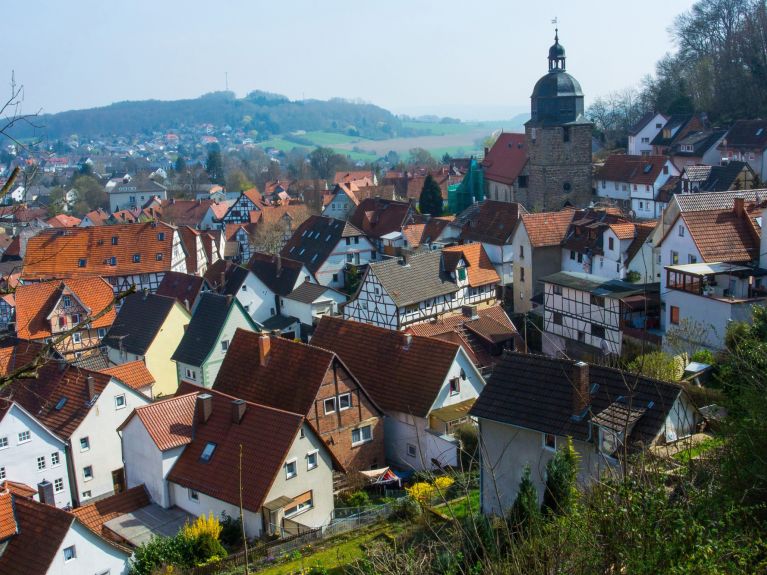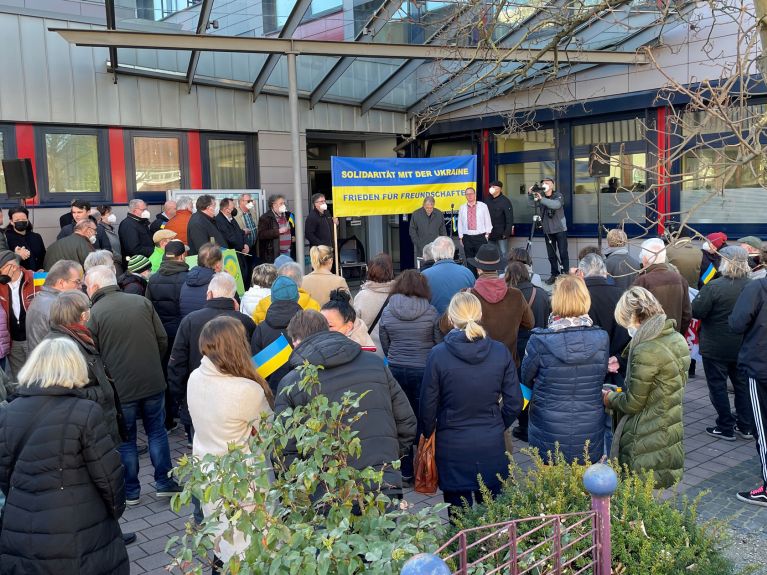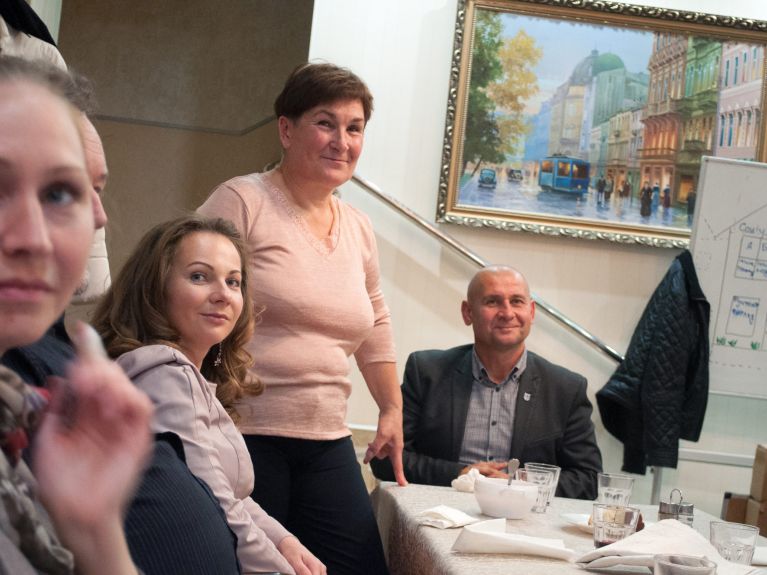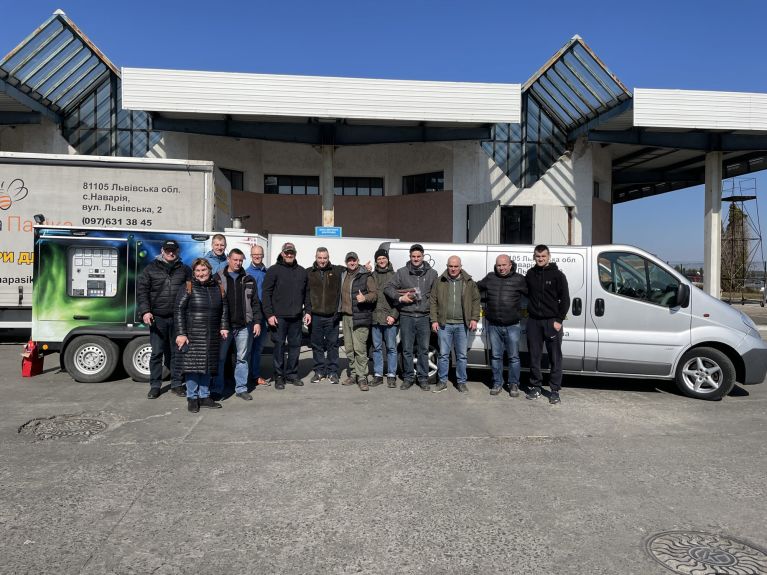Partners in hard times as well
Help in wartime: The city partnership between Gudensberg and Shchyrets has intensified in times of need.

All plans have been put on hold since the start of the invasion. There is a state of emergency in Shchyrets. As early as mid-February, the Ukrainian town made precautionary evacuation plans for public institutions, especially for the schools. The citizens had built up stocks of water and the children practiced going to assembly areas when the sirens sounded. A few days later the grim predictions became reality. The Russian Army invaded Ukraine.

Shchyrets became the partner of Gudensberg in northern Hesse in 2016. Both towns are of a similar size, or rather, equally small. Gudensberg in Germany has about 10,000 inhabitants and Shchyrets has barely 6,000. In addition to lively cultural exchanges, meetings between young people or political committees, numerous local projects were developed through this partnership within a short space of time, says Eberhardt Kettlitz, coordinator for local development policies in Gudensberg. “We have used the so-called quick-start packages provided by the Federal Ministry for Economic Cooperation and Development, and together with our partners in Shchyrets we have worked out where we can help. It soon became clear that there was a need not only for financing, but especially for expertise, in other words know-how transfer and an exchange of experience. This played a role in the expansion of the voluntary fire brigade in the Ukrainian town, and it was particularly important during the development of a central drinking water supply and the construction of a sewage system. Shortly before the war the area of Shchyrets was topographically surveyed and mapped, together with help from Gudensberg. This formed a basis for the further development of the town in Lviv Oblast in the west of the country.

Then the war was unleashed. Up to now Shchyrets has been spared from direct attacks, but since the start of the conflict it has become a gathering place for many refugees from the battle zones. Kettlitz was told that there are always around 300 refugees in the town. They are being cared for and accommodated in gyms, the school hall and community centres. The people then move on west from Shchyrets, and, as Kettlitz knows from his Ukrainian partners, the refugees often have injuries from their arduous flight, and are suffering especially from psychological distress.

But for the citizens and leadership of Gudensberg it was clear from the very start that they would support the people of their partner town, especially during their time of need in the war. In an interview with the magazine “Kommunal”, Kettlitz stressed in mid-February: “No matter what happens, we definitely want to keep in touch. And we shall carry on planning our development work together. We’re not going to bury our heads in the sand.” The past few weeks have demonstrated what this help can look like, and how strongly the partnership is anchored in civil society.
Partnership association organizes donations and transports
Just a few days after the war began, the Gudensberg Partnership Association organized a vigil and launched a donation campaign, with great success. Meanwhile, a total of 230,000 euros have already been privately donated, plus an additional 120,000 euros from the town of Gudensberg and other local communities in North Hesse. On top of this, many companies from Gudensberg and North Hesse are also giving valuable donations in kind. These donations are being taken to the partner town in humanitarian transports organized by the companies themselves. The twelfth transport left on 4 April. The aid packages are first transported to the Polish-Ukrainian border, and from there they are delivered directly to Shchyrets. “We hold video conferences several times a week,” says Kettlitz, “and our partners give us precise details about what is needed most urgently.” This includes medical equipment and medicines, airbeds and warm blankets, gas masks, boots, backpacks, powerbanks and emergency generators.

In this way the war is intensifying the depth of the German-Ukrainian partnership, far beyond the realm of normality. Kettlitz: “We actually had a whole series of projects lined up for 2022, a journey to Ukraine for business people, a joint choir project with singers from Ukraine, Poland and Gudensberg, and an international youth meeting similar to the ones we have been staging once every year. This is all very doubtful now.”
You would like to receive regular information about Germany? Subscribe here:


